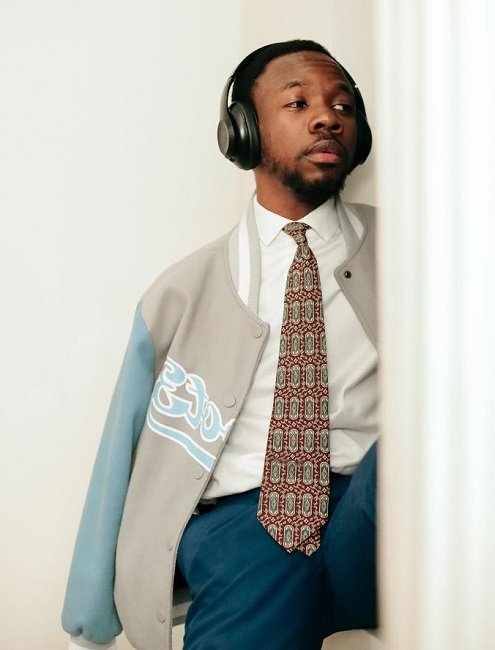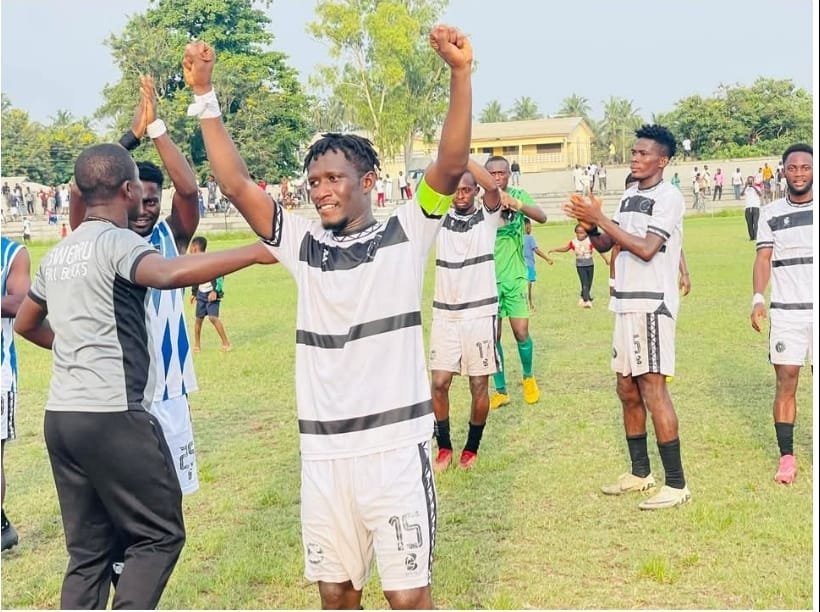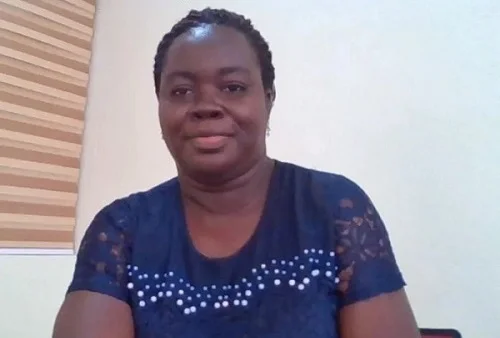Hot!
Koo Kusi, making giant strides in the music industry

● Koo Kusi, the rapper
Music is a powerful tool in the hands of musicians but not all musicians are capable of handling it well. Some go to the extent of producing less worthy contents that incite social vices among the youth.
However, other musicians stand out with their noteworthy contents on education, romance, folklore, current affairs and many more. One of such musicians is a Texas-based Ghanaian rapper, Koo Kusi, who uses his music to talk on sentimental issues which traumatise the youth.
His recent album, ‘Greetings from Abroad,’ paints a picture of the country’s economic woes affecting the youth in various spheres of life and how they cope with the situation. The 7-track extended play gives an account of a Ghanaian immigrant from what pushed him to leave his current situation and perseverance in life.
Interacting with The Spectator, he said the theme of the album is centred on fear. This includes the immigrant’s fear of not meeting his expectations, fear of failing in Ghana and not delivering to his loved ones after leaving Ghana.
Koo Kusi whose real name is Nana Kofi Kusi-Boadum, stated that his stories were on mental health issues, thus most of the things were in tune with psychology in the social regard.
“Music can be therapeutic serving as an aid in certain disorders, to establish physical, mental and emotional well-being. Instead of giving you the complex science that I practise every day, my stories are on related issues that portray the challenges my audience face,” he expressed.
According to Koo Kusi, every song on the album is a different chapter that touched on the same theme, and it has been received well by the youth on social media.

COVER ART AND THE SONGS
Taking this reporter through his work, Koo Kusi touched on the symbolism of the cover art and how each artwork, resonated with the songs on his album.
At the top left of the album cover, is a ‘Rich Dad, Poor Dad’ with faded yellow T-shirt of Ghanaian hip-hop artiste, Kojo Cue, depicting the first song on GFA. In that song, the immigrant fears he might be unable to do well for himself and his family due to the current hardships in the country.
“I am paying homage to Kojo Cue’s song that speaks on generational wealth and how one has to become successful for his family. However, the individual in my song fears that he may not be up to the task demanded by Kojo Cue,” he explained.
The next track, ‘From Abroad,’ resonates with a green passport bearing the title of the album and the Japa Nation logo (a globe with an aeroplane circling around it) inscribed on it, as well as a student identity card. Also, on the passport, there is an individual with two luggage in Ghana on the African continent.
In the song, the immigrant gains admission to a school abroad yet lacks financial means to leave the country. Therefore, he borrows money from his uncle with the assurance of paying off his debts, two weeks later. Again, both the song and art touch on the narrator’s pursuit of seeking greener pastures even if, it is on the ticket of a student visa.
“The youth in Africa are naïve about the happenings abroad. Payment of health insurance is compulsory and expensive as compared to the situation at home. You must pay $2000 dollars per semester,” he noted.
The third track, ‘Agya Amo Calling’ cites the pressure bedevilled by the narrator due to his delay in paying back his uncle. The narrator is unable to pay his debts because of the exchange rates abroad. Therefore, he would have to convert the cedis to dollars before transacting smoothly. Besides, the cedis won’t match up to the dollars after the conversion.
In ‘No Where Cool,’ Koo Kusi paints the narrator’s ordeals and the harsh reality of gun violence in America to his colleague in Ghana, who also wishes to migrate. The track features another rapper, RBD, who explains why he anxiously wants to leave Ghana.
“On my part, I tell a story of a young Ghanaian child who was a victim to gun violence here in the States. This happened because his uncle wanted to make the father proud by bringing him here,” he said.
With all these fears harboured by Koo Kusi, he transitions them onto the next track, ‘Greatest Fear.’ This emphasises his fear to deliver despite the perception his family and friends have, regarding his academic successes and creative skills.
Unable to meet society’s expectations, the rapper hints suicide in his songs, however, he resists the temptation with the last songs on the EP, ‘5Foot3 Creed’ and ‘Nsuro.’
‘5Foot3 Creed’ correlates with antidepressant pills lying atop the passport of the cover art and, the Tribe of God shoes containing the passport and ID card matches with ‘Nsuro.’ Finally, there is a studio Kusi jacket (red and black chequered jacket) which signifies deviance over depression.
“The narrator isn’t giving in to the demands of suicidal thoughts, besides God is ordering his steps and he shall fear no evil,” he said.
FUTURE
Speaking about his future prospects, Koo Kusi informed his impatient fans to keep their fingers crossed for bigger projects in the future.
“5Foot3 was on inferiority complex and GFA was on fear, anxiety and depression. Hopefully, the next one would be on another essential issue,” he said.
He expressed excitement at how the album has positively affected his audience in relation to the tones of messages he has been receiving.
Although he began rapping since high school, Koo Kusi’s style of rapping on topical issues was shaped by an art group called Sasa, which he joined at the Kwame Nkrumah University of Science and Technology in Ghana in 2019
He was the recent winner of a viral video open verse challenge of Ghanaian rapper, Manifest’s “Clean and Pure” song.
Koo Kusi who is also a trained pharmacist, is currently pursuing a PhD in neuroscience and pharmacology in the United States of America.
By Yunusah Essandoh
Hot!
Swedru All Blacks back to winning ways, Roshan humble King Faisal

Sekondi Rospak FC made it eight wins in eight successive home games after three second-half goals from John Amoah, Joseph Ntow and Stephen Anthony Kofi. John Amoah opened the scoring in the 55th minute after a barren first half. Joseph Ntow added to the tally in the 56th minute before Stephen Anthony Kofi rounded things up in the 74th minute to give Rospak a 3-0 win over former Premier League side King Faisal.
Elsewhere at Swedru – leaders Swedru All Blacks humbled PAC Academy in an emphatic 2-0 win. Zayat Bubakari scored first for Swedru All Blacks in the 27th minute before Rudolf Junior Nana Kwasi Mensah made it 2-0 in the 34th minute. Swedru All Blacks are top of the table with 36 points – 4 points ahead of second placed Rospak FC.
Meanwhile, Former Premier League side Cape Coast Mysterious Dwarfs recorded their fourth successive home victory after beaten New Edubiase United 2-1 at the Robert Mensah Park. Enoch Odoom struck first for Cape Coast Mysterious Dwarfs in the 19th minute but Steven Asante equalized for New Edubiase United before halftime. After the interval, Godfred Eshun scored from distance in the 65th minute to help Cape Coast Mysterious Dwarfs secure all the points.
Here are the results in Zone Two

Hot!
Cervical Cancer alert: Avoid sex at early age

The Programmes Manager of Non-Communicable Diseases (NCDs) of the Ghana Health Service (GHS), Dr Mary Efua Commeh, has advised young girls to avoid sex at an early age.
This, she explained, will give the cervix the opportunity to mature before they become sexually active.
“You need to delay what we call the first sexual intercourse as much as possible to give the cervix the opportunity to mature before the person becomes sexually active,” she said.
Dr Commeh stated this in an interview with The Spectator in Accra on Tuesday as a part of the Cervical Cancer awareness month.
According to her, cervical cancer was the second leading female cancer in Ghana with a total of about 3,072 cases annually, and out of that, 1,815 deaths are recorded, representing more than 50 per cent.
She indicated that “If young girls are going to be sexually active, then you need to talk to your parents about being vaccinated.”
She explained that vaccinating young girls against human papillomavirus (HPV) has been found to be a very effective way of preventing cervical cancer.
“There are countries that started HPV vaccination years ago and they are not seeing any cervical cancers now because they would have eliminated most of the high-risk HPVs in their women. So if the high-risk HPV is not there, then obviously the results on cervical cancers are going to go down,” she added.
Dr Commmey said the HPV vaccination is recommended for young girls aged nine to 14 years, adding that it had been found to be highly effective, not just for cervical cancers but for other HPV-related cancers, such as anal cancers, cancers of the vagina, genital warts, amongst others.
She further elaborated that the idea is to put up a barrier before the HPV comes in and that once a young female encounters it, she is already protected.
She also mentioned that for cervical cancers, the main cause is called HPV infection, saying generally, all sexually active women acquire HPV at some point in their lives.
However, the Programmes Manager of NCDs at the GHS mentioned that the body has a way of clearing the HPV, explaining that it is a natural mechanism that goes on, unfortunately, there are a few women whose HPV persists.
Moreover, she noted that the numbers for Cervical Cancer tend to be much higher because at times, clients would wait, and try all sorts of medications before they finally report to the health facility saying “we actually lose some women before they get to the hospitals with over 75 per cent of the cases coming in its third and fourth stages.”
Dr Commey, therefore, called for public awareness while ensuring the availability of information for prevention and control.
By Jemima Esinam Kuatsinu







